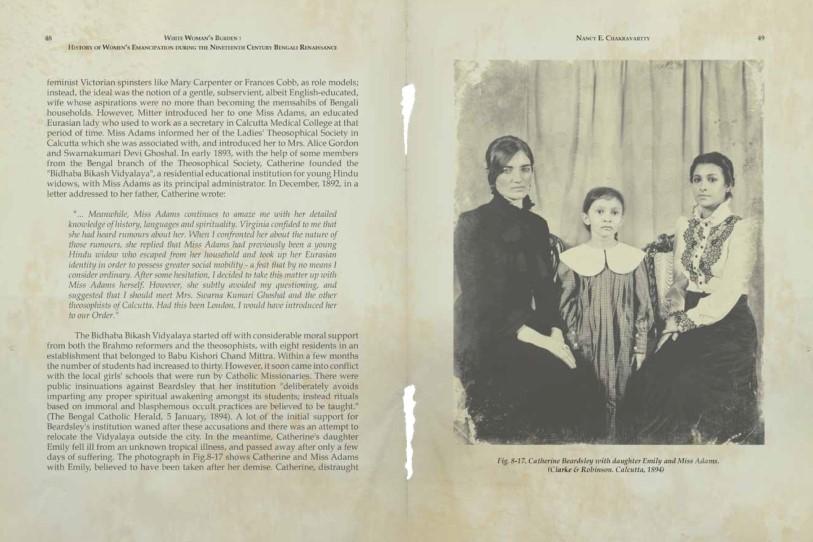Imagined Archives: An Interview with Shan Bhattacharya
Shan Bhattacharya is a self-taught photographer and artist based in Kolkata. His interest in photography is partly inspired by his late grandfather, who photographed his family and friends for three decades with a Kodak Brownie. In his photographic work, Bhattacharya draws influences from fantasy and science fiction in both literature and cinema. His previous works include Blow (2012) and Hiraeth (2013-15). He has also collaborated with the Bodhisattwa Trio, a Kolkata-based avant-garde jazz band, to produce a small book of abstract photographs as a visual accompaniment to their last concept-driven album, Heart of Darkness (2016).
In this conversation, we discuss his recent book, PORTAL: The Curious Account of Achintya Bose, published by the Sher-Gil Sundaram Arts Foundation and Tulika Books.
Senjuti Mukherjee (SM): The book PORTAL: The Curious Account of Achintya Bose works as a biography, an album, a chronicle and an aesthetic invocation to the modern history of photography. Could you please shed light on each of these aspects?
Shan Bhattacharya (SB): I am glad that you deconstruct the book in this way. To be honest, this project was initially conceived in order to explore the history of twentieth-century photography—at least certain aspects of it—in a local context. But I did not want the book to function only as an album that displays photographs. I needed a more suitable container. So, I borrowed a few ideas from some of the books and films I was seeing at the time which contained this mix of diverse storytelling elements that you mention. I did not want any one of these elements to overshadow the others. As for the history of photography, it was not always necessary to factually refer to it.

SM: Through your investigation of an imagined archive, we realise the possibilities of merging fiction with reality, and the way it may recalibrate our relationship to the past. What inspired this approach and are there references you can cite?
SB: Our relationship to the past not only develops on the basis of our access—through direct sociocultural lineage, formal education or otherwise—to historical facts, memorabilia, relics or residues, but also on popular fiction-based arts and cultural elements that refer to it. In the history of both literature and cinema, there are plenty of works that display both historical and entirely fictional elements coexisting in a single narrative plane. I am, personally, a fan of works that invoke the viewer's suspension of disbelief in such a method. In this respect, I looked up to works from the fantasy realms of Jorge Luis Borges, the conceptual reserve of artist Joan Fontcuberta, the absurdist world of Peter Greenaway, Shūji Terayama and the haunting and longing present in the films of José Luis Guerín as influences. Also, one must acknowledge that the very act of surfing content-overloaded social media in the past decade has invariably infused the modern viewer with a certain amount of distrust towards any published content claiming to be factual. We have all become somewhat aware of the extent to which “post-truth” has penetrated our psyche.
SM: There are many interfaces with a certain politics of representation in this book that reflect on surveillance and biometrics but also the very idea of anonymity, voice and agency. What inspired these positions in the years since you received the grant?
SB: The basic ideas and the structural framework of this book were conceived in 2014, over a year before I received the Umrao Singh Sher-Gil grant. It started out as an attempt to explore the concept of identity. A lot has happened on the global political stage since then: events that directly and indirectly led to rapid technological innovation and subsequent administrative implementation in the fields of biometric surveillance and facial recognition/profiling. All of these have a deeply problematic relationship with human rights, agency and anonymity. Although the primary narrative of the book is set in the past century, it is not free from the preoccupations that arise from living in the twenty-first-century surveillance era.
All images from PORTAL: The Curious Account of Achintya Bose by Shan Bhattacharya. New Delhi: Sher-Gil Sundaram Arts Foundation and Tulika Books, 2020.







